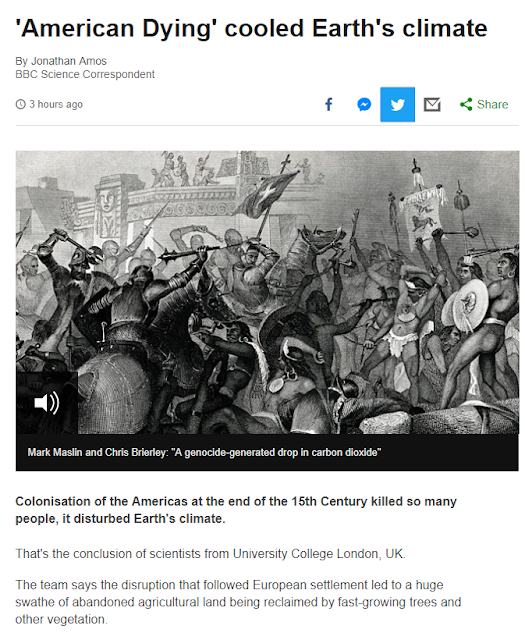The Carbon Cycle is an important element of the 'A' level Geography specifications, and students need to be clear on the different stories and processes which lead to carbon being stored, released and transferred on a global scale.
Some fascinating research has been published on the possible connections between atmospheric carbon, climate change and the historical period following the 'discovery of the Americas' by European explorers.
When Columbus and contemporaries encountered native peoples they weren't particularly peaceful towards them. In fact, they generally enslaved and killed them, so that they could take their land and resources, or use them as slaves. This is well worth reading, as it reminds us that there are occasional changes to natural cycles which are influenced by human activities.
BBC News article

Some fascinating research has been published on the possible connections between atmospheric carbon, climate change and the historical period following the 'discovery of the Americas' by European explorers.
When Columbus and contemporaries encountered native peoples they weren't particularly peaceful towards them. In fact, they generally enslaved and killed them, so that they could take their land and resources, or use them as slaves. This is well worth reading, as it reminds us that there are occasional changes to natural cycles which are influenced by human activities.
BBC News article

Dying in the Americas after 1492 led to lower CO2 and global cooling. Our paper shows humans impacted earth system before Industrial Revolution. https://t.co/XZwIcCAZiw @ProfMarkMaslin @cmbrierley @SimonLLewis pic.twitter.com/rczGoCcL4T— Alex Koch (@kochalex_) January 31, 2019
Comments